With only 1,120 words, arranged in 49 sentences, the Declaration of Independence solemnly read by President Ho Chi Minh at a rally on the afternoon of September 2, 1945 in Hanoi was evaluated by the world as a historical document, a concise, concise, sharp legal document, with profound ideological value and contemporary significance.
Video : President Ho Chi Minh reads the Declaration of Independence at Ba Dinh Square, September 2, 1945. (Excerpt from the documentary "Vietnam in the Ho Chi Minh era - Television chronicle).
Every autumn, looking up at Ba Dinh Square in the bright yellow sunlight, each of us is moved and filled with emotions when thinking about the event that took place here 78 years ago - Uncle Ho solemnly read the Declaration of Independence giving birth to the Democratic Republic of Vietnam. That sacred image, that dear voice was clearly depicted by poet Duong Thuan in the famous poem: "I say, can you hear me clearly, my compatriots?"
"I say, do you hear me clearly?"
Uncle Ho's dear voice lingers in my heart
The Declaration Uncle Ho read long ago
Still yearning forever with mountains and rivers...
The Declaration of Independence is considered by many scholars to be the "great work of literature of the ages" of the new era, written in extremely special circumstances, when the country and the young revolutionary government had to face many difficulties and challenges.
In 1945, although having taken power from the Japanese fascists, every day and every hour, Uncle Ho and the Provisional Revolutionary Government had to deal with both internal and external enemies. The imperialists, with their plot to return to dominate our country again, did not recognize Vietnam's independence. They sent Chiang Kai-shek's army - a lackey of the American imperialists - and the British army, under the name of the Allies, to disarm the Japanese fascists. However, President Ho Chi Minh fully understood that this was a sinister plot of the US and the UK to help the French colonialists return to Vietnam. Because previously, Indochina (including our country) was a French colony. To prepare for this return, the French colonialists spread to world public opinion that: Indochina was a French colony and France had civilized it since the 19th century. Although Indochina was occupied by Japan, Japan had now surrendered to the Allies, and France was a member of the Allies, so it had the right to return to Indochina to take back the occupied land.
In the Declaration of Independence, Uncle Ho devoted 1/3 of the time to condemning the extremely barbaric crimes of French colonialism against the Vietnamese people. With tight arguments and sharp reasoning, he exposed the evil nature, unjust and inhumane acts of French colonialism to world public opinion. With skillful, concise and meaningful political art, combining the use of evocative and powerful expressive words, with a tone that was sometimes indignant, choked, sometimes boiling and angry, he "rebutted" the argument of "100 years of exploiting Indochina" of French colonialism in a convincing way. "They built more prisons than schools. They brutally killed our patriots. They bathed our uprisings in seas of blood...".
The Declaration of Independence of the Democratic Republic of Vietnam. (Photo source: Ho Chi Minh Museum, Ho Chi Minh City branch).
Along with the condemnation, he also frankly exposed the French colonialists' "exploration and protection" campaign of selling our country to Japan twice (in 1940 and 1945). He also pointed out their deceitful argument of betraying the allies, not only not cooperating with the Viet Minh but also brutally terrorizing the Viet Minh. He stated very clearly: "The truth is that since the fall of 1940, our country had become a colony of Japan, not a colony of France anymore. When Japan surrendered to the allies, the people of our entire country rose up to seize power and establish the Democratic Republic of Vietnam. The truth is that our people took back Vietnam from the hands of Japan, not from the hands of France. The French fled, the Japanese surrendered, King Bao Dai abdicated..."
On September 2, 1945, President Ho Chi Minh read the Declaration of Independence at Ba Dinh Square. Photo: Archive
It can be said that the Declaration of Independence is a declaration in modern times, after the declaration "Nam Quoc Son Ha" of Ly Thuong Kiet's time and "Binh Ngo Dai Cao" of Nguyen Trai; it is an important legal document, laying the basis for affirming the establishment of a rule of law state in Vietnam.
Reading the Declaration of Independence, famous historians and theorists around the world all have the same opinion as Professor Singi Sibata (Japan): "Ho Chi Minh's famous contribution is that he developed human rights into national rights". Because before that, the declarations of the US and France simply mentioned human rights as a necessity of creation, no one could violate... But with his sharp intelligence, practical experience in Vietnam and the oppressed colonies, he developed it into an undeniable or refuted thesis about the rights of nations. The US Declaration of Independence states: "All men are created equal...", while Ho Chi Minh writes: "All men are created equal....". This is not simply a matter of words but the awareness of noble human values, universal to all mankind. Because the original American phrase “All men” was set in a completely different context from Vietnam. When we know that, at the end of the 18th century, slavery still existed, racial discrimination and discrimination in America were still very heavy; the men with rights mentioned in the declaration were only white men. As for Ho Chi Minh, he very clearly affirmed that rights are for “all people”, regardless of men, women, status, class, religion, or ethnicity. According to Ho Chi Minh, human rights and national rights have a dialectical relationship, closely linked together. National independence is a prerequisite to ensuring human rights and vice versa. He once said: “If the country is independent but the people do not enjoy happiness and freedom, then independence is meaningless”.
It can be seen that, with his outstanding intelligence, President Ho Chi Minh quoted but adjusted and developed with his own contemporary viewpoint. That is an invaluable contribution in theory and practice on human rights associated with national rights, progressive and suitable to the development of the times. This is also a demonstration of the wisdom, strategic acumen and predictive ability of Ho Chi Minh's genius.
Flag-raising ceremony at Ba Dinh Square. Photo courtesy
Years will pass, but the spirit of the Declaration of Independence that gave birth to the Democratic Republic of Vietnam - the first worker-peasant state in Southeast Asia - will always live forever in the hearts of generations of Vietnamese people. "The entire Vietnamese people are determined to devote all their spirit and strength, their lives and property to maintain their freedom and independence." President Ho Chi Minh's noble thoughts, great determination and iron will have become the great strength of the entire Vietnamese people. It is not only a sacred oath for Independence Day but also a guiding principle in the work of building and protecting our country's sovereignty.
Content: Engraved
Photos, videos: documents
Design & Engineering: Huy Tung - Khoi Nguyen
6:02:09:2023:08:17
Source


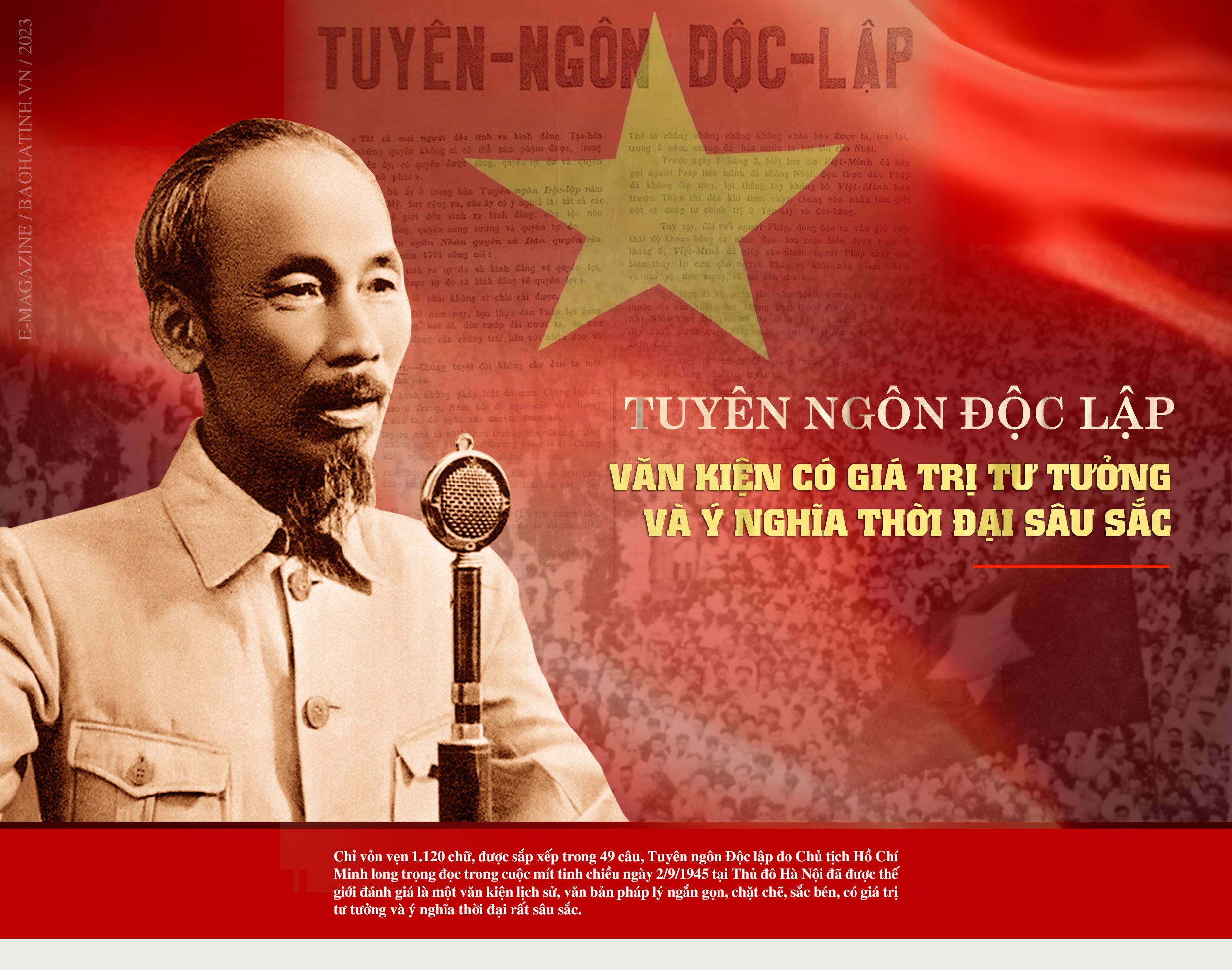
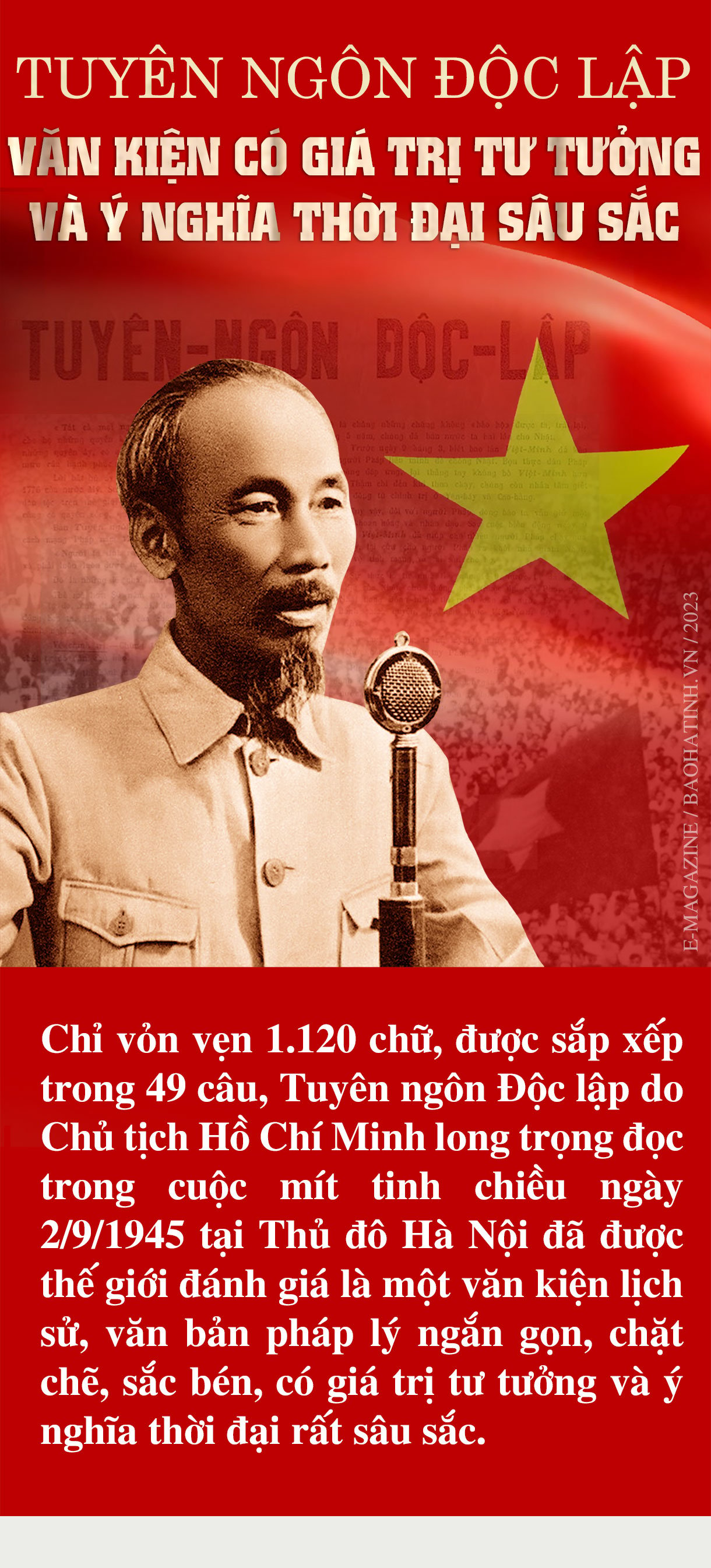
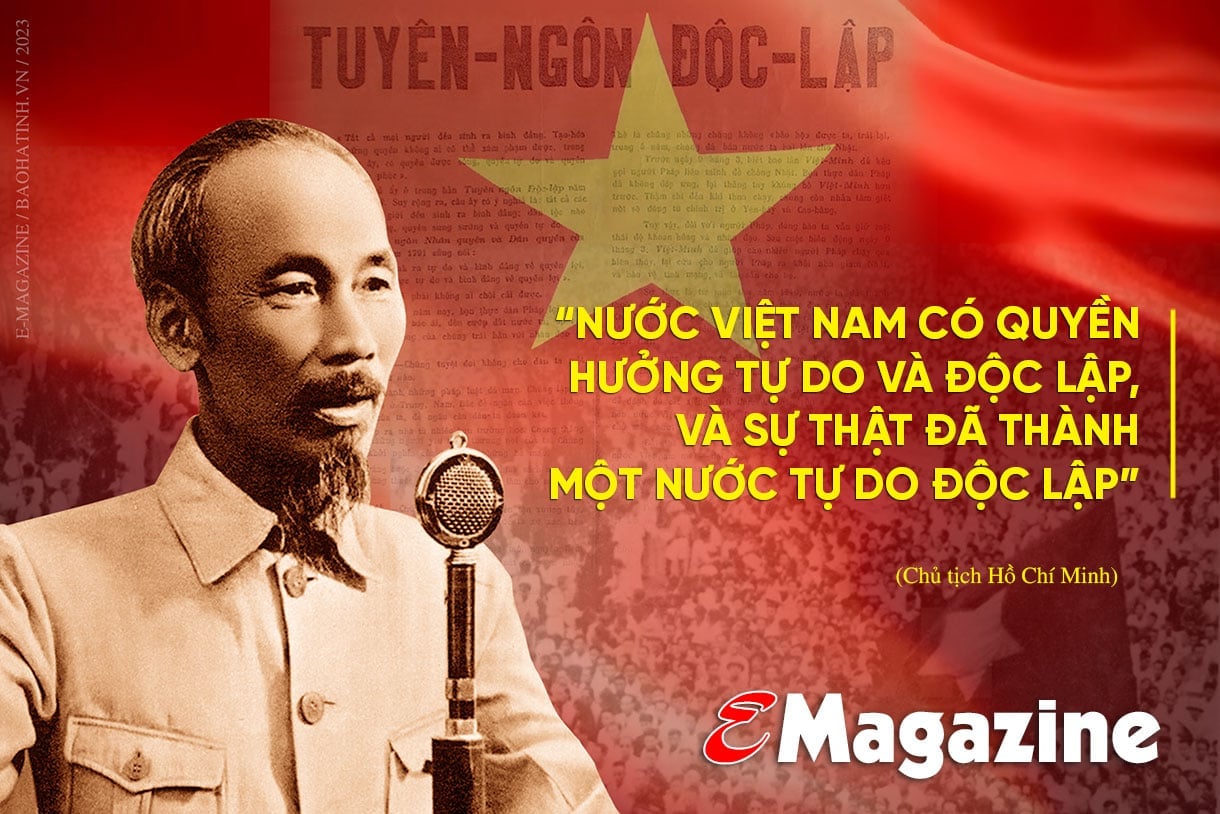


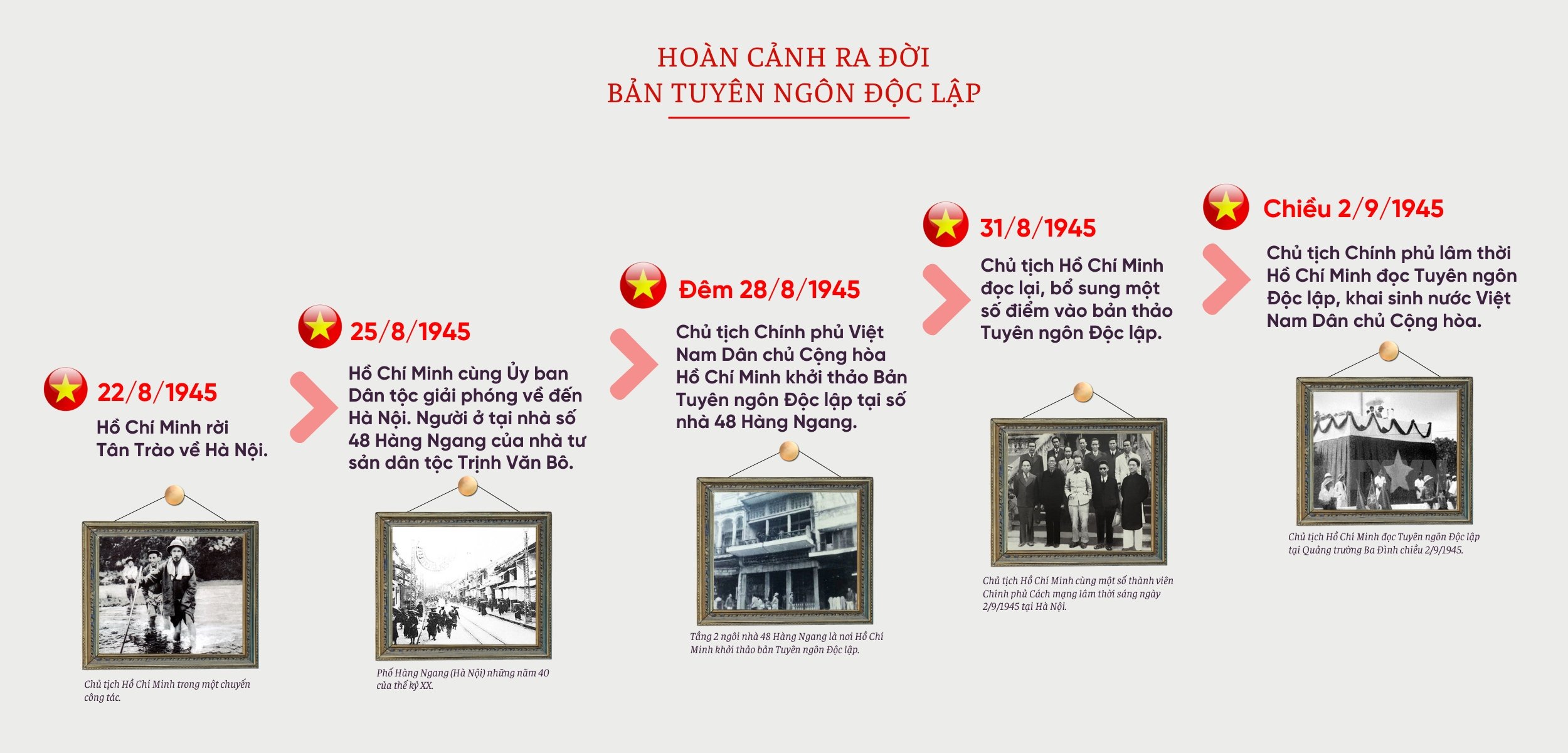
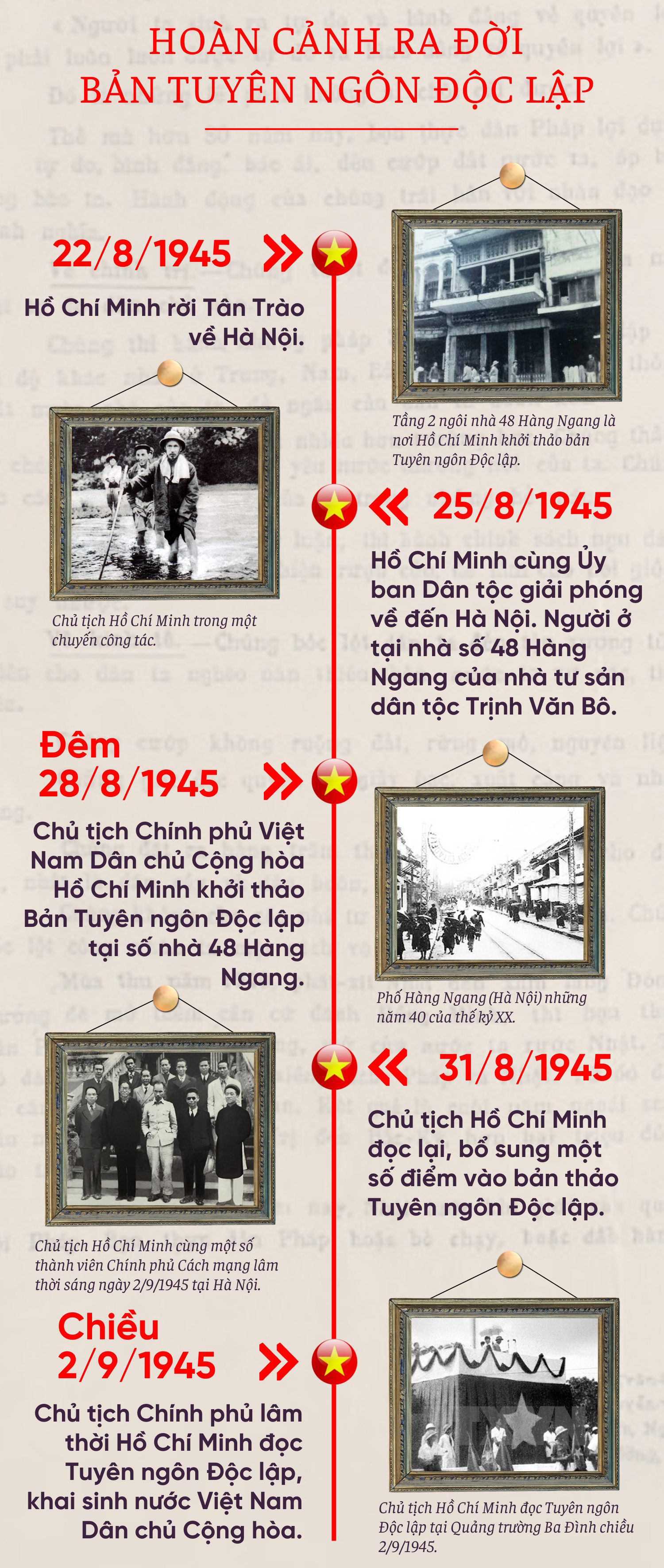


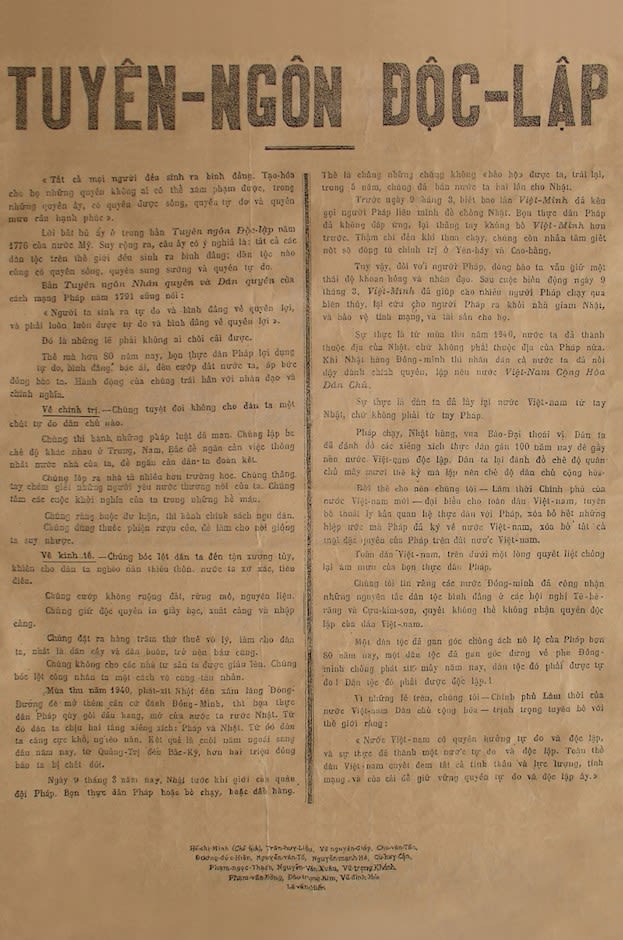
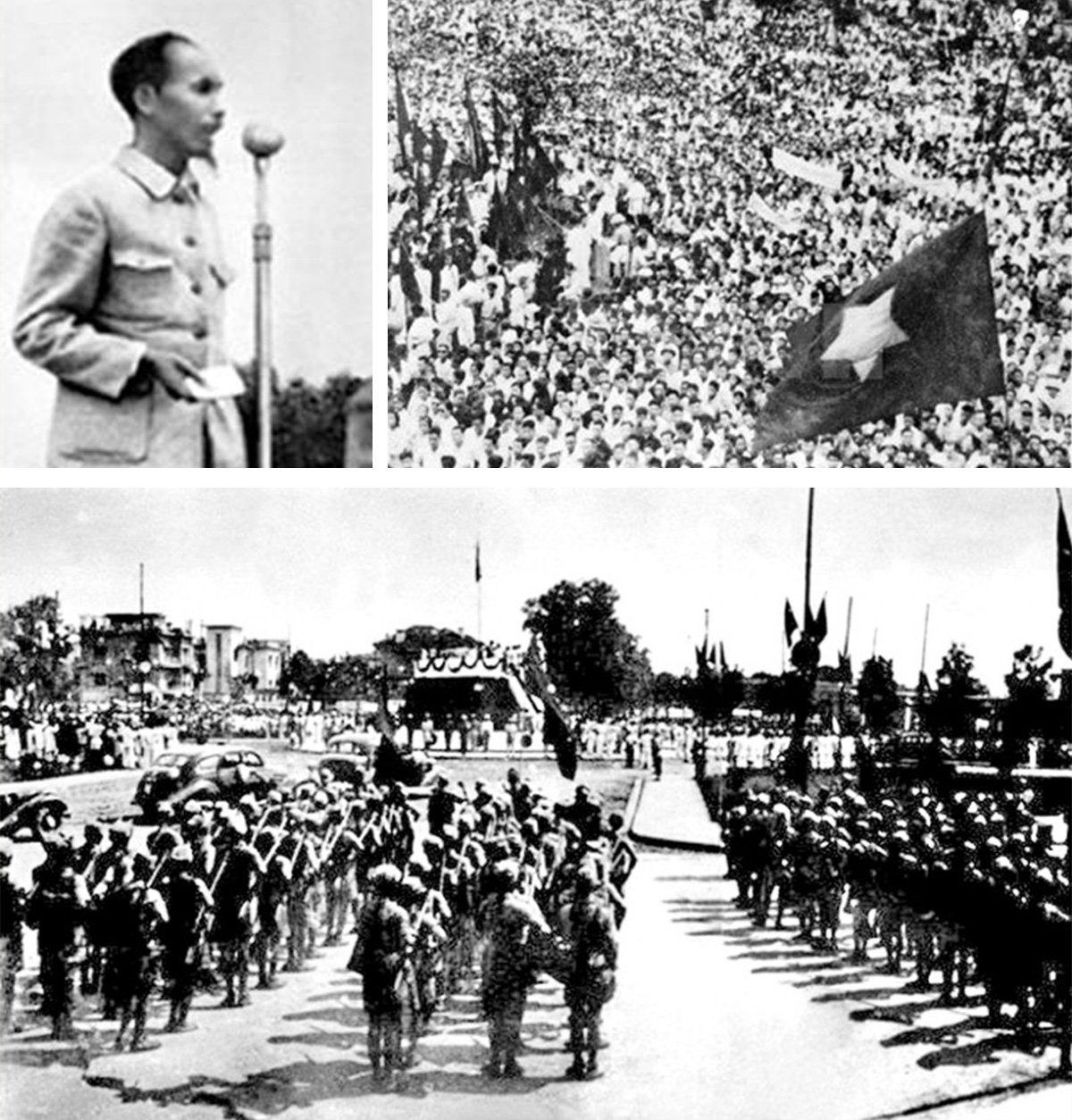


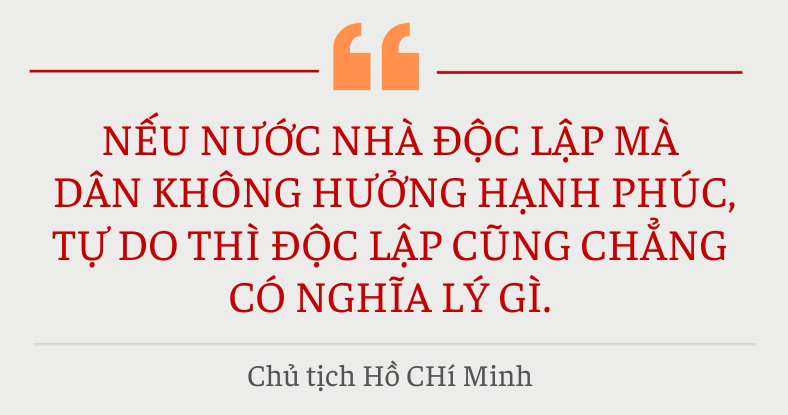
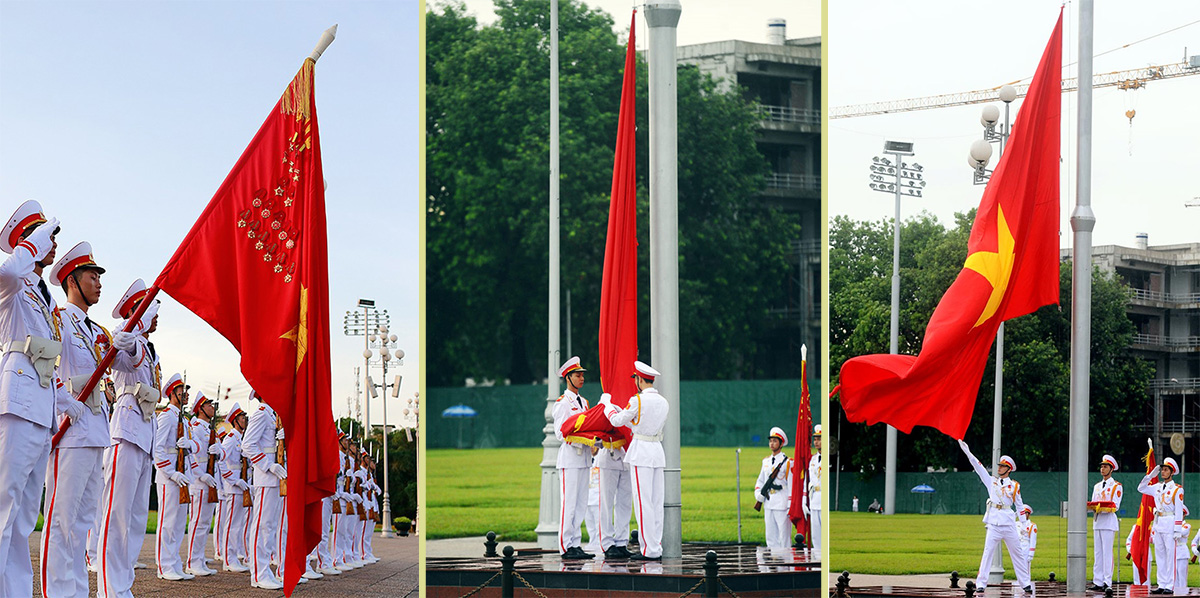


![[Photo] Prime Minister Pham Minh Chinh chairs the Government's online conference with localities](https://vphoto.vietnam.vn/thumb/1200x675/vietnam/resource/IMAGE/2025/10/5/264793cfb4404c63a701d235ff43e1bd)

![[Photo] Prime Minister Pham Minh Chinh launched a peak emulation campaign to achieve achievements in celebration of the 14th National Party Congress](https://vphoto.vietnam.vn/thumb/1200x675/vietnam/resource/IMAGE/2025/10/5/8869ec5cdbc740f58fbf2ae73f065076)

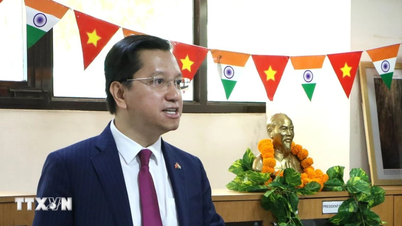










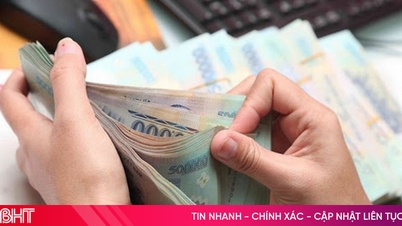











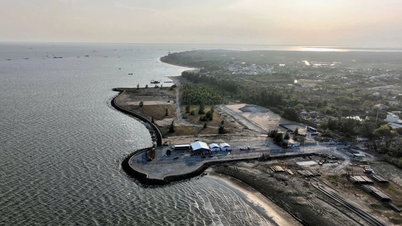
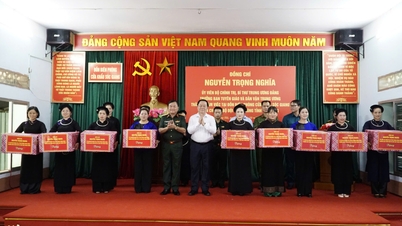
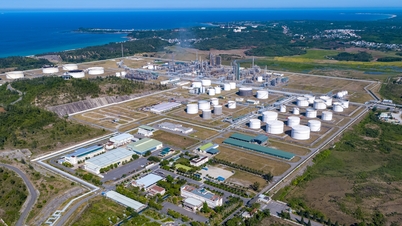
![[Photo] Opening of the 13th Conference of the 13th Party Central Committee](https://vphoto.vietnam.vn/thumb/1200x675/vietnam/resource/IMAGE/2025/10/6/d4b269e6c4b64696af775925cb608560)




























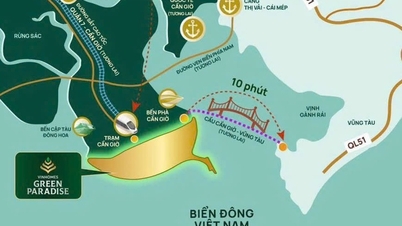

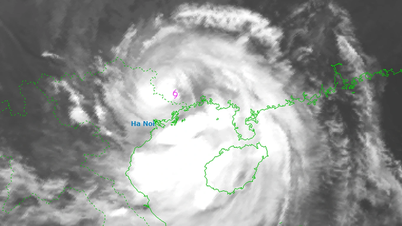






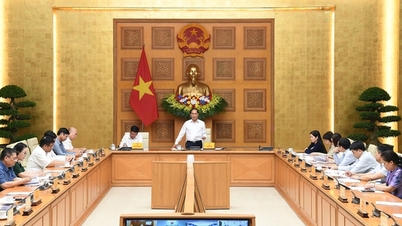
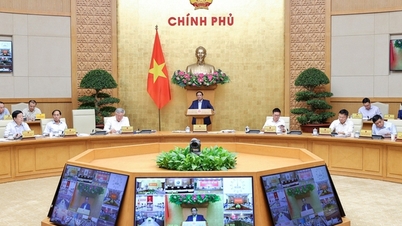
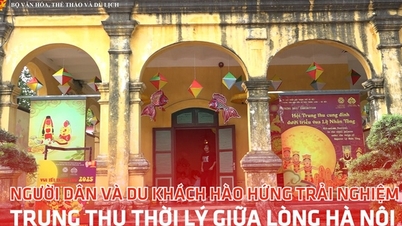






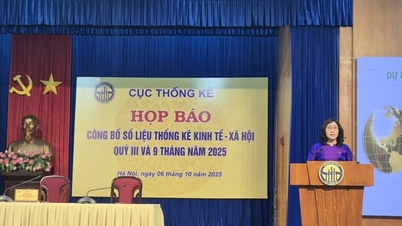

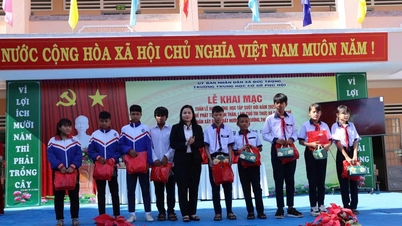
















Comment (0)